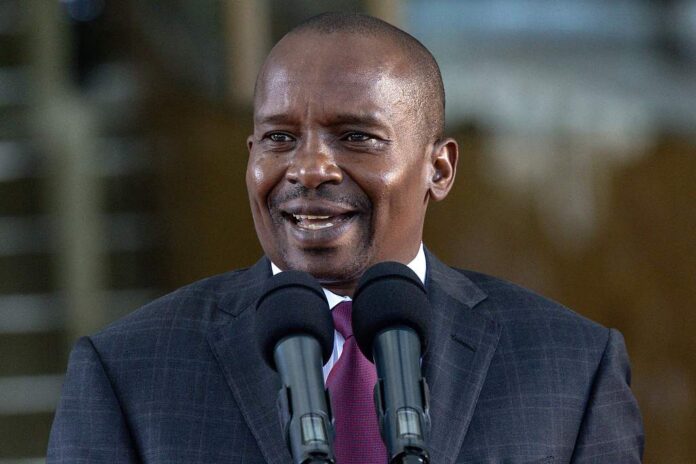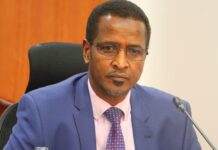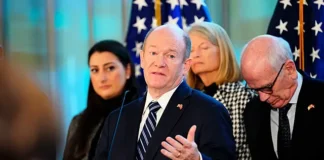Deputy President Kithure Kindiki has officially opened the Africa Employers’ Summit 2025 at the Emara Ole Sereni Hotel in Nairobi, urging African employers to integrate youth in driving business transformation and advancing social justice.
The two-day summit, running from September 8–9 under the theme “Empowering Business to Advance Social Justice”, is organized by the Federation of Kenya Employers (FKE) in partnership with BUSINESSAfrica Employers’ Confederation, the International Labour Organization (ILO), and the International Organisation of Employers (IOE).
It brings together policymakers, business leaders, and development partners to chart the future of work, skills development, sustainable enterprises, and inclusive growth.
In his address, Prof. Kindiki stressed that enterprise and social justice are not competing forces but mutually reinforcing when businesses create decent jobs, uphold labor rights, ensure fair wages, and integrate social and environmental goals.
He said Africa’s rapidly growing youthful population over 400 million people aged between 15 and 35 represents both the continent’s greatest challenge and its biggest opportunity.
“Africa of the 21st century will be powered by young people, where technology and public-private partnerships will also define our success. It is the Africa we must dream of and actualize in our lifetime,” he said.
Kindiki challenged employers to embrace inclusivity by creating opportunities for youth, women, and persons with disabilities, while also promoting community investment, environmental stewardship, and ethical governance.
He further highlighted the need for workplace flexibility, saying today’s youthful workers demand adaptable environments over rigid corporate norms.
Reaffirming Kenya’s commitment to social justice, he pointed to the Bottom-Up Economic Transformation Agenda (BETA), which prioritizes job creation and income opportunities for young people.
He concluded by urging collaboration between governments and the private sector to unlock Africa’s potential, noting that it is possible to achieve a more inclusive and prosperous continent in this generation.
By Michelle Ndaga



















